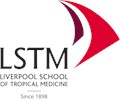Story
The work of the Liverpool School of Tropical Medicine (LSTM) has never been more important: we need to think global to act local. As recent events have shown, pandemics do not respect geographical boundaries and a globally focused effort, in which LSTM plays a key role, is needed to combat them.
For an organisation like LSTM, deploying our resources where we can to support the fight against COVID-19 is our civic and moral duty. Our researchers and clinicians support front line care in the NHS, provide expertise to Public Health England and the WHO and mobilise our research focus onto the rapid development of new diagnostics, treatments and prevention strategies to halt the disease.
Many of our colleagues working at the front line of the COVID-19 response operate in even more challenging circumstances in some of the worlds most fragile health systems. One of the most vulnerable is Malawi, where the first confirmed cases have been reported and desperate preparations are now underway. The impact of COVID-19 on the people of Malawi could be devastating.
Malawi has 350 clinical doctors to treat a population of 18 million people and even the largest hospitals are woefully lacking the basic equipment needed to treat the most serious cases. LSTMs team, based at the Malawi-Liverpool-Wellcome research programme in Blantyre, estimate that two thirds of serious cases admitted to hospital could die because there is inadequate equipment available.
We are urgently seeking support to help them.
AN OPEN LETTER FROM COLLEAGUES AT THE MALAWI-LIVERPOOL-WELLCOME TRUST
CLINICAL RESEARCH PROGRAMME, BLANTYRE
16th April 2020
Dear friends and supporters,
Thursday, 2nd April 2020 marked the day for which Malawi has been preparing for some weeks with great trepidation: the confirmation of the first cases of COVID-19 in the country.
Malawi is a densely populated low-income country making rapid spread of COVID-19 very likely. Models estimate that up to 90% of Malawis 18 million population will become infected during the epidemic. While the population is young, there is a high burden of both infectious (TB, HIV and malaria) and non-communicable diseases (stroke and diabetes) making Malawis population incredibly vulnerable to the effects of COVID-19. In a nation where food and water are often purchased on a daily basis, social distancing and lockdown measures will be difficult to implement. We are therefore working with the Malawi Government and other partners at district and national level to develop innovative ways to shield vulnerable populations and prevent deaths.
We are actively supporting preparedness at our local healthcare facilities in order to maintain essential services and mitigate against the effects of the epidemic and we continue to contribute directly to clinical care at Queen Elizabeth Central Hospital, which operates beyond capacity on a daily basis. Currently, there is a major shortage of basic PPE, inadequate facilities for or waste disposal and insufficient oxygen provision making the prospect of a widespread community transmission of COVID-19 uphill challenge. As the Ebola crisis taught us, epidemics can turn hospitals and clinics into places of fear, discouraging attendance and leading to indirect mortality.
Despite many challenges, Malawi has made undeniable progress in health outcomes over the last 20 years, as proven in the past few months when the WHO formally declared the country having eliminated lymphatic filariasis, a neglected tropical disease affecting millions across the continent. This was possible in part due to the commitment of the government and its partners to develop healthcare workers. These precious individuals are now at the frontline of the COVID-19 response and need appropriate protection and support to avoid healthcare worker infections. This can only be achieved by ongoing international cooperation; appropriate funding; easing of relevant import and trade restrictions and sharing of knowledge.
We write to you to ask for support to purchase basic equipment to ensure that people on the frontline are adequately equipped to deliver the best health care during this time. Your financial support will also be used both in the hospital to purchase oxygen and basic sanitation for infection prevention, and in the community to support public engagement work and public health measures to prevent transmission. This global COVID-19 pandemic is challenging, even in the most developed healthcare systems. We can still protect and save lives in Malawi but it is now a race against time.
With thanks and best wishes,
Professor Stephen Gordon, Director, MLW
Professor Henry Mwandumba, Deputy Director, MLW
Professor David Lalloo, Director, Liverpool School of Tropical Medicine (LSTM)
Professor Bertie Squire, Dean of Clinical Medicine and International Public Health, LSTM
Dr Derek Cocker, MLW
Dr Jennifer Cornick, MLW
Professor Nicholas Feasey, MLW
Dr Bridget Freyne, MLW
Professor Melita Gordon, MLW
Dr Marc Henrion, MLW
Dr Kondwani Jambo, MLW
Dr Rebecca Lester, MLW
Dr David Lissauer, MLW
Dr Eleanor McPherson, MLW
Dr Ben Morton, MLW
Dr Priyanka Patel, MLW
Dr Pratiksha Patel, MLW
Dr Jamie Rylance, MLW
Dr Sepeedeh Saleh, MLW
 Campaign by
Campaign by 